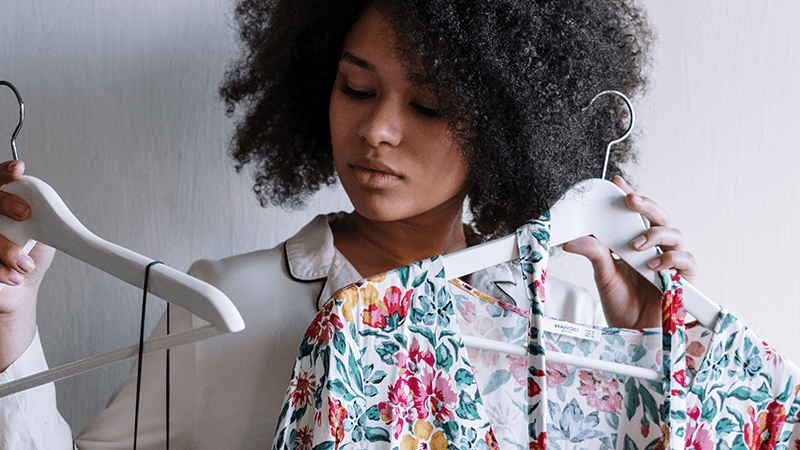The One Phrase That Keeps You From Protecting Your Savings
Share this content :

“I’ll get it back.”
That’s a go-to phrase that several people tell themselves after spending a lot of money. We’ve probably said this at least once or twice, after buying a fancy meal or a new phone. Fast forward to a few days later, and suddenly our wallets are empty. What you don’t notice is that as you say these phrases, you are keeping yourself from protecting your savings. In the blink of an eye, our hard-earned salaries seemed to disappear into the wind.
The sad reality is that we all overestimate our ability to compensate. We think we can regain our money within a few days. However, the phrase is a toxic mantra and is not a good motto if you’re into protecting your savings. Here are the reasons why you should avoid using this phrase and what you can tell yourself instead.
Why It’s Dangerous
When we use the phrase “I’ll get it back,” we often assume that we’ve already accounted for it. Many of us have been taught to track our expenses to manage our income and protect our savings. As long as we can remember the numbers we spend and keep, we feel safe.
The problem with the phrase is that we feel so confident or assured about reimbursing ourselves that we overestimate our skills. One example of overestimating is called the “planning fallacy”, where people think they have lots of time to do their work. Those who tell themselves “It’s only a few minutes, I’ll do it later” tend to lose several hours of work. It’s the main reason why people become procrastinators. Once the deadline gets close and their task becomes urgent, that’s the time people start to panic.
This fallacy could also apply to our spending habits. We like to think we have enough money to enjoy ourselves or that some purchases aren’t heavy. Some people even believe that they’ve kept their expenses into account in their minds. However, by the time we check how much cash is left, it’s too late to protect our savings. That fancy car or those expensive shoes will haunt you because you didn’t consider their price tag properly.
The Problem With Absolutes
Another issue with the phrase “I’ll get it back” is that it’s an absolute statement. Those who say it believe they can guarantee their returns. Unfortunately, you can’t assume that your money will grow back unless you watch it carefully. Otherwise, your confidence will break when you check back to reality and see your accounts or piggy bank.
One way you can overcome this overconfidence is to always check the evidence. Treat your money like science by recording all the numbers involved. Make it a daily goal to review your expenses and your remaining cash. The more frequent you see the actual financial record, the easier it will be to plan ahead. Never assume that you know how much money you have. Instead, always track how much money is available and write it down.
Alternative Phrases to Protect Our Savings
Now that we know how dangerous the phrase “I’ll get it back” can be, it’s time to find a different mantra. Finding the right phrase is important to motivate ourselves and check our money. We recommend these five questions that you can ask yourself when you examine your cash. With these questions, you can give yourself a reason to review your priorities and needs.
Do I Need This?
Always ask yourself how crucial your purchase is. It’s easy to pay off your water and electricity bills because you know their importance in life. However, this question gets tough when you want to spend on something nice, like coffee or a new shirt. Treating yourself is fine if you do it properly. To be safe, always question if your next purchase will benefit you in the long run. Once you realize what is vital and what isn’t, it’s easier to say no and hold back.

Is There an Alternative?
The best purchase isn’t the most expensive. There are lots of options you can explore to meet your needs and standards. Think about how dieticians help patients that want to lose weight. These people may enjoy sweet foods and energizing drinks. Dieticians can recommend healthy foods, like frozen grapes and fresh apples, to satisfy their sweet tooth while keeping them on a healthy diet.
Similarly, there are several budget-friendly options that give us what we want and protect our savings. For example, buying a French press can be faster and more efficient than high-priced espresso machines. For more options, check out these budget-friendly alternatives to the popular brands people often buy.
What’s My Daily Goal?
Setting a daily goal or limit can help you track your money and protect your savings. Consider how much you’re willing to spend per day. For example, if you set a spending limit of $40 a day, you’ll pay close attention to the prices and costs of the next thing you buy. If you see something you want and find out that it will cost half of your daily budget, you’ll be able to convince yourself to walk away.
Is This Urgent?
Did you know that 95% of all Americans make impulsive purchases? Whether online or at the store, Americans tend to buy something as soon as we see it. What’s worse is that many of us excuse these purchases by saying “It’s only a few dollars” as they head to the checkout area.
A good safety net to fight back is to think about how urgent your purchase is. Is this product so important that you won’t survive the next day? Will your life will change for the better as soon as you buy it?
Once you realize how many things you can wait for, saving money becomes second nature.
Aside from impulsive purchases, it’s also crucial to check the recurring expenses we have. Examples of these are mortgage fees, electricity bills, and app subscriptions. Sometimes we overlook these fees or forget to properly cut off the bill. By the time we’re reminded of our next payment, we only have pennies to spare. Save yourself the trouble by listing all recurring expenses in one note. If you see any that haven’t been used in a while, like VOD libraries or streaming services, consider cutting it off. Alternatively, you could pick a more affordable deal, especially if they offer different service packages.
Above all else, don’t get complacent. If you notice that something isn’t working, you can always consult a financial expert on how to protect your savings. If it feels like you’re paying too much for necessary things, try raising your spending limit.
In Summary
The phrase “I’ll get it back” can be dangerous for those of us who like to make expensive or impulsive purchases. With this line, we often think we can earn all that cash back. Instead, we could end up losing our future budget for important things. By keeping track of what we spend and how much we spend per day, we can better protect our savings. We can also ask ourselves questions like “is this urgent” or “what’s my daily spending goal” to help us reflect on what we will spend on next.
We have related video about benefits of saving that might inspire you to save and protect your savings
Share this content :
Copyright © 2023 Munif Ali. All rights reserved.

